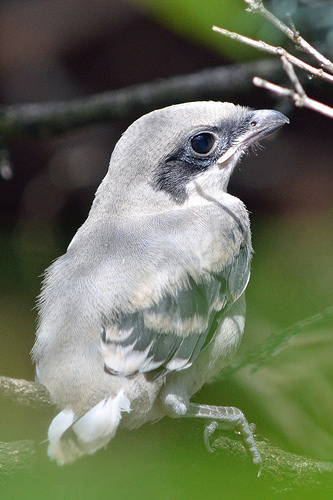Loggerhead Shrike Chicks Hatch at Smithsonian Conservation Biology Institute
Ten loggerhead shrikes hatched last month at the Smithsonian Conservation Biology Institute (SCBI) in Front Royal, Va. These genetically valuable chicks will be the first SCBI-hatched shrikes to be released into the wild, helping to bolster native populations. Hatched May 3, May 7 and May 8 to three sets of parents, keepers have been monitoring the birds for the past few weeks and are encouraged by the young shrikes' growth. If they continue to thrive, all 10 chicks will transfer to the Toronto Zoo in the next few weeks, where they will become a part of the zoo's reintroduction program.
Loggerhead shrikes, also called butcher birds, are migratory birds that hunt small animals, such as grasshoppers and lizards, and impale them on thorns or barbed wire. SCBI has 22 loggerhead shrikes. Last year, three pairs bred and produced seven chicks. In the wild, shrikes sometimes have more than one clutch of eggs in a breeding season, and scientists are hopeful that more chicks will hatch in a few weeks.
Loggerhead shrikes were once common across North America. Their populations have fallen sharply (down 70 percent), and they have disappeared from New England completely. There may be as few as 100 birds remaining in Virginia, a state where they were once abundant. They are listed as endangered in Canada and in 26 states, and they may soon be added to the Endangered Species List. The reason for their decline is poorly understood, but SCBI scientists are working with wildlife biologists in Virginia and West Virginia to investigate possible causes. Information learned from breeding and studying these species will contribute to a better understanding of population declines and help conserve this threatened local species.
# # #
Photo 1: Loggerhead shrike chicks at seven days old. Credit: Warren Lynch, Smithsonian Conservation Biology Institute.
Photo 2: Loggerhead shrike chick at approximately 20 days old. Credit: Chris Crowe, Smithsonian Conservation Biology Institute

